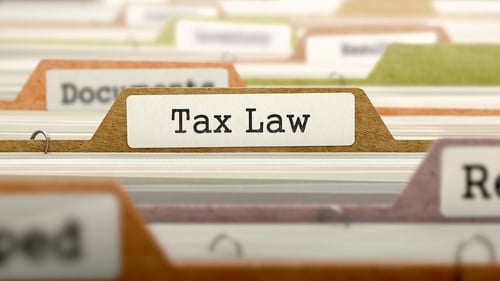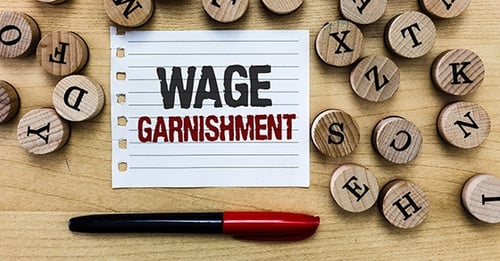Powell Tax Law Blog

New IRS 1099-K Reporting Rules for PayPal, Venmo, & Other Payment Apps
Until recently, if you wanted to pay for something you had to use one of the “four C’s” of payment methods: cash, check, credit card, or charge.
Over the last 25 years, however, we have seen a transition from the C’s to D (digital payment!).
“A majority of Americans, 58 percent, use digital payment apps at least twice a week,” says Motley Fool’s The Ascent. “Digital payment apps like PayPal, Cash App, Venmo, and Zelle are becoming as commonplace as the Visa or Mastercard found in most wallets.”
Many small businesses and gig economy workers rely on these payment apps to send and receive funds … and the federal government has taken notice regarding tax reporting.
“Small business owners and gig economy workers face a significant change in 2024. The Internal Revenue Service (IRS) is implementing new rules for reporting income received through popular apps like PayPal, Venmo, and Cash App,” says experienced tax lawyer Steve Powell. “Originally slated for 2023 but delayed, these changes to Form 1099-K reporting will have far-reaching implications for many taxpayers.”
Understanding the Form 1099-K Changes
In order to understand the changes the IRS has implemented, you need to understand what Form 1099-K is:
- Form 1099-Kis a report of payments you got for goods or services during the year from:
- Credit, debit, or stored value cards such as gift cards (payment cards).
- Payment apps or online marketplaces, also called third-party settlement organizations or TPSOs.
- Credit, debit, or stored value cards such as gift cards (payment cards).
These organizations are required to fill out Form 1099-K and send copies to the IRS and to you. Payments you send and receive from family and friends should not be reported on Form 1099-K.
For 2023. the reporting threshold was:
- Popular payment apps and online marketplaces were only required to send out Forms 1099-K to taxpayers who receive over $20,000 and have over 200 transactions (as per the American Rescue Plan Act of 2021 which set this threshold instead of payments over $600).
Starting in 2024, the new threshold for sending out Form 1099-K is $5,000 instead of payments over $600. This reduction of $15,000 (From $20,000 threshold to $5,000) will result in many more 1099-K Forms being received this tax year.
“If you use an app like Venmo or PayPal to collect business payments, take note: The IRS has delayed a rule requiring those apps to send you a tax form for reporting such transactions if they total $600 or more for the year,” says Credit Karma. “Starting with tax year 2024, the IRS plans to require Venmo, PayPal, CashApp, and other online payments platforms to send a 1099-K to anyone who hits a much-lower $5,000 threshold.”
This new threshold of $5,000 for Form 1099-K is regardless of the number of transactions. So, yes, if you sell your Beanie Baby collection on eBay for $5,100 ... expect a Form 1099-K!
Digital Economy Transforms How We Conduct Business
The digital economy has transformed how we conduct business and receive payments. With the rise of payment apps, tracking and reporting income has become both easier and more complex.
The IRS, to close the "tax gap" and ensure more accurate reporting of income, has lowered the threshold for issuing Form 1099-K.
This change will affect millions of small business owners, freelancers, and gig workers who rely on digital platforms for payments.
“The new reporting requirement planned for tax year 2024 is expected to generate a flood of additional 1099-K forms as the lower reporting threshold affects more taxpayers. If you’re a gig worker or own a small side business, you may want to consider reaching out to a professional bookkeeper or accountant to help understand what your tax liability might be,” advises Intuit’s Credit Karma.
The Types of Payments Affected by the New Rules
This new rule applies to payments received for goods and services. It does not apply to personal transactions like splitting rent or dinner with friends.
All major payment apps are required to comply with these new regulations, including but not limited to:
- PayPal
- Venmo
- Cash App
- Google Pay
- Apple Pay
Note that Zelle is an exception as this payment app is controlled by a consortium of banks and is not subject to 1099-K reporting requirements.
The IRS says that the types of payments included on Form 1099-K include:
- Goods you sell, including personal items such as clothing or furniture.
- Services you provide.
- Property you rent.
The payments can be made through any:
- Payment app.
- Online community marketplace.
- Craft or maker marketplace.
- Auction site.
- Car sharing or ride-hailing platform.
- Ticket exchange or resale site.
- Crowdfunding platform.
- Freelance marketplace.
Implications for Small Businesses and Gig Workers
The IRS reminds taxpayers that anyone who’s selling goods or serves at a gain is expected to pay taxes on that income, regardless of the threshold.
Here are the implications for small businesses and gig workers with the Form 1099-K reporting requirements:
- Increased Income Visibility: With the lower threshold, the IRS will have greater visibility into income received through digital platforms. This means that even part-time gig workers or occasional sellers may receive a 1099-K.
- More Accurate Income Reporting: The new rules should lead to more accurate income reporting, as taxpayers will have official documentation of their digital payment income.
- Enhanced Record-Keeping Needs: Small business owners and gig workers will need to maintain more detailed records to reconcile their income with the 1099-Ks they receive.
“If you expect to receive a Form 1099-K, be sure to keep updated records of your transactions, balance sheet, and other financial documents. Otherwise, inaccuracies when filing could trigger an IRS audit,” says Credit Karma.
Powell Tax Law Tips: 1099-K Best Practices
Powell Tax Law offers the following best practices for 1099-K reporting:
- Separating Personal and Business Transactions: It's crucial to use separate accounts or payment methods for personal and business transactions to avoid confusion and potential over-reporting of income.
- Detailed Record-Keeping: Maintain comprehensive records of all income and expenses, including:
- Date and amount of each transaction.
- Purpose of the payment.
- Payer information.
- Date and amount of each transaction.
- Understanding Taxable Income: Not all payments received through these platforms may be taxable. It's important to understand what constitutes taxable income in your specific situation.
- Update Bookkeeping Practices: Consider adopting or updating your bookkeeping software to better track and categorize digital payments.
- Consult a Tax Professional: Given the complexity of these new rules, it may be wise to consult with a tax professional to ensure compliance and optimal tax planning.
The new 1099-K reporting rules represent a significant shift in how digital payment income is reported to the IRS. While these changes aim to improve tax compliance, they also bring new challenges for small business owners and gig workers.
By understanding these new regulations and implementing robust record-keeping practices, you can navigate these changes effectively and ensure accurate tax reporting.
“It’s crucial to stay informed about these new rules and how they may impact your specific situation,” advises Powell. “Remember, proper preparation and accurate record-keeping are key to avoiding potential issues come tax time.”
Stay ahead of the curve and ensure your business is prepared for these important changes in tax reporting. Your financial health and peace of mind are worth the effort.
Reach out to Powell Tax Law today for tax advice and help with Form 1099-K reporting and other IRS issues.







